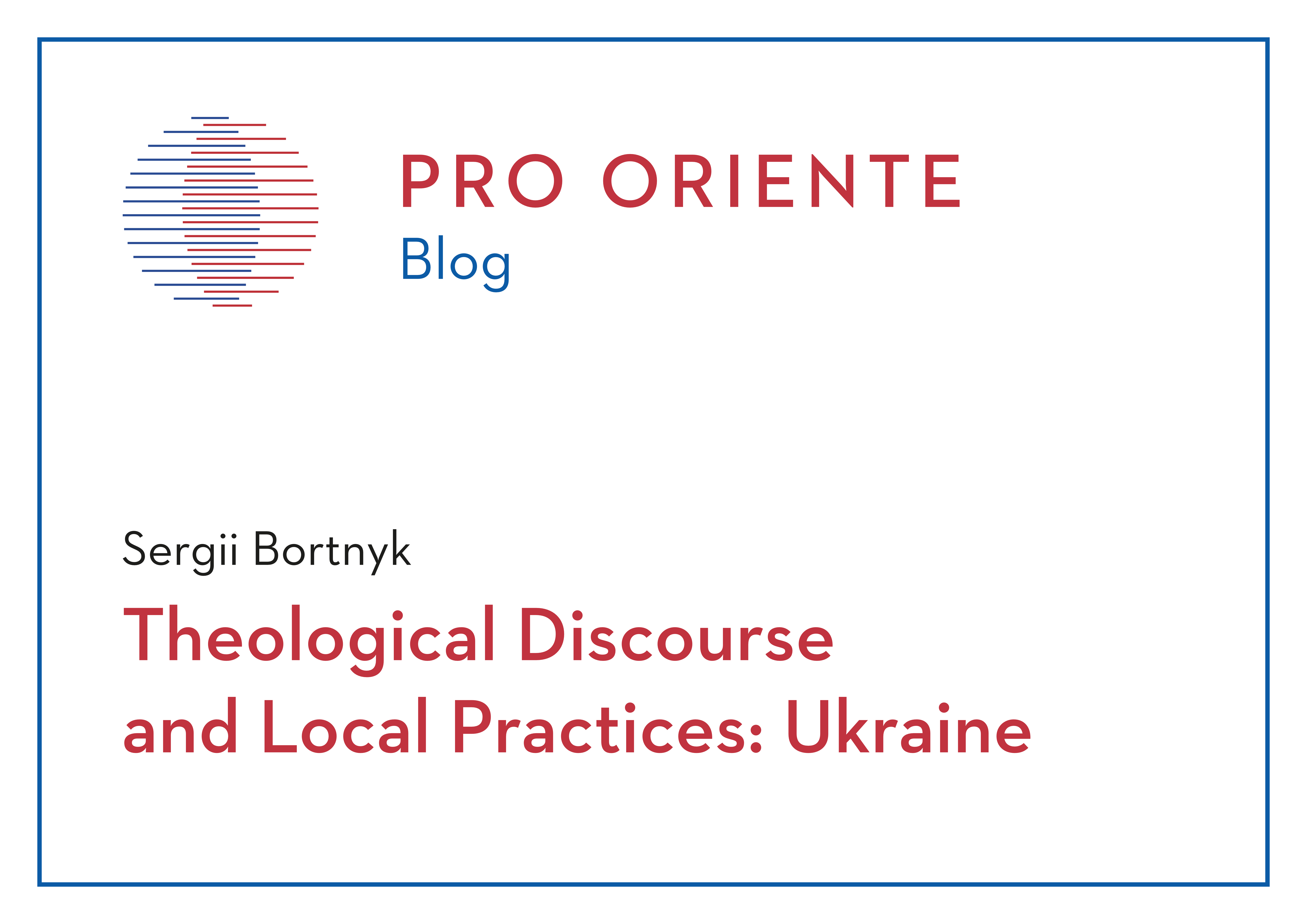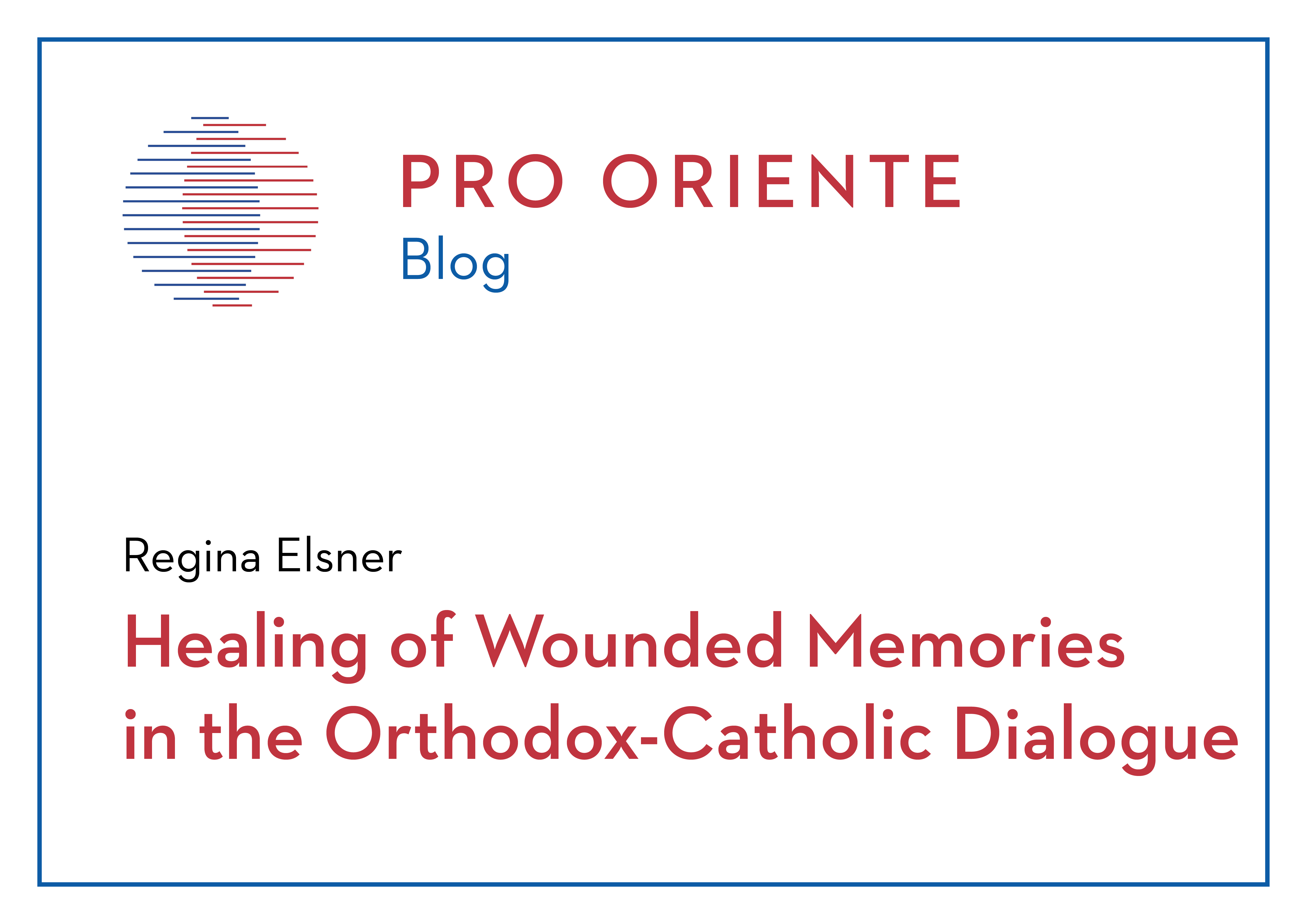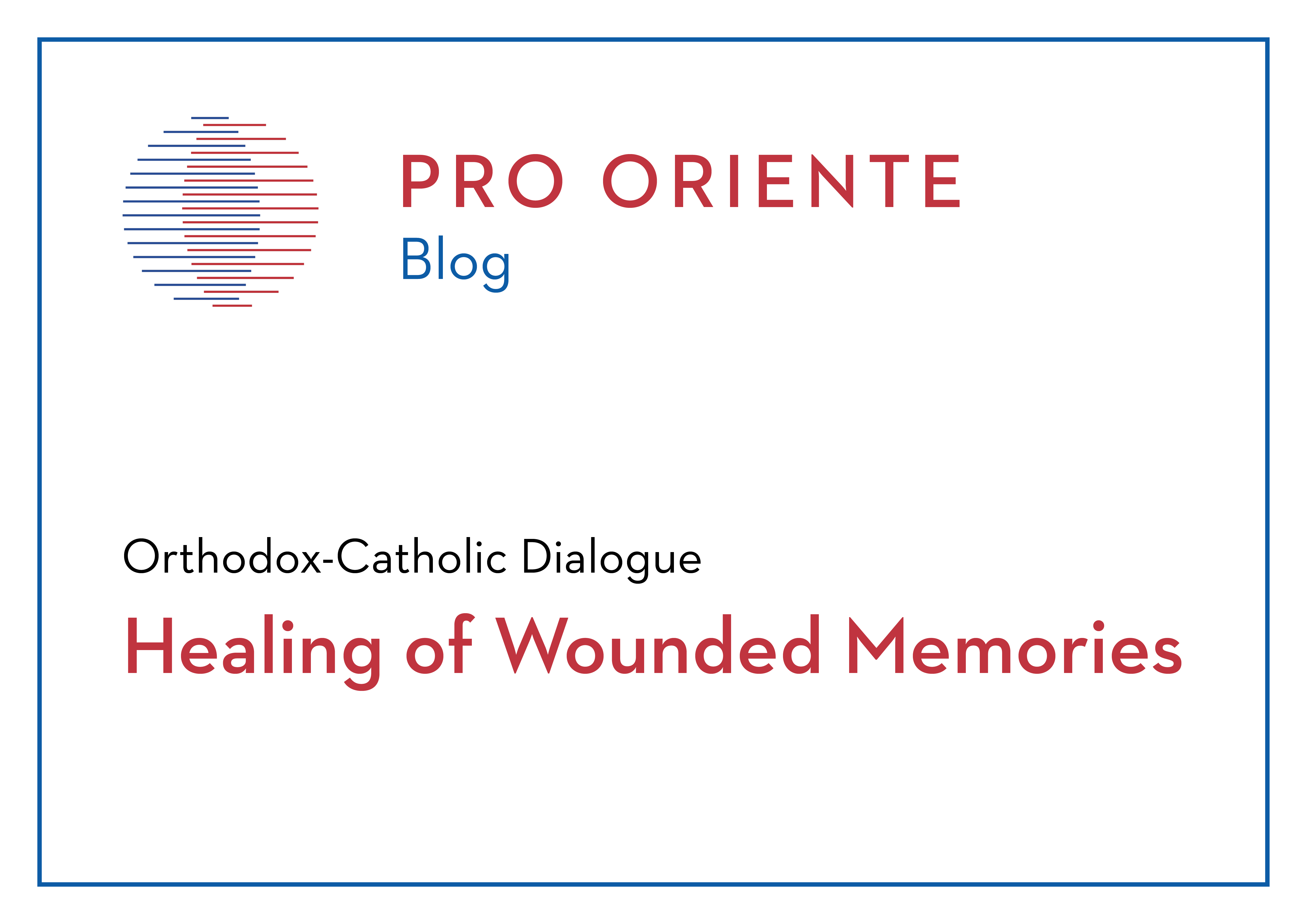Blog
November 2024
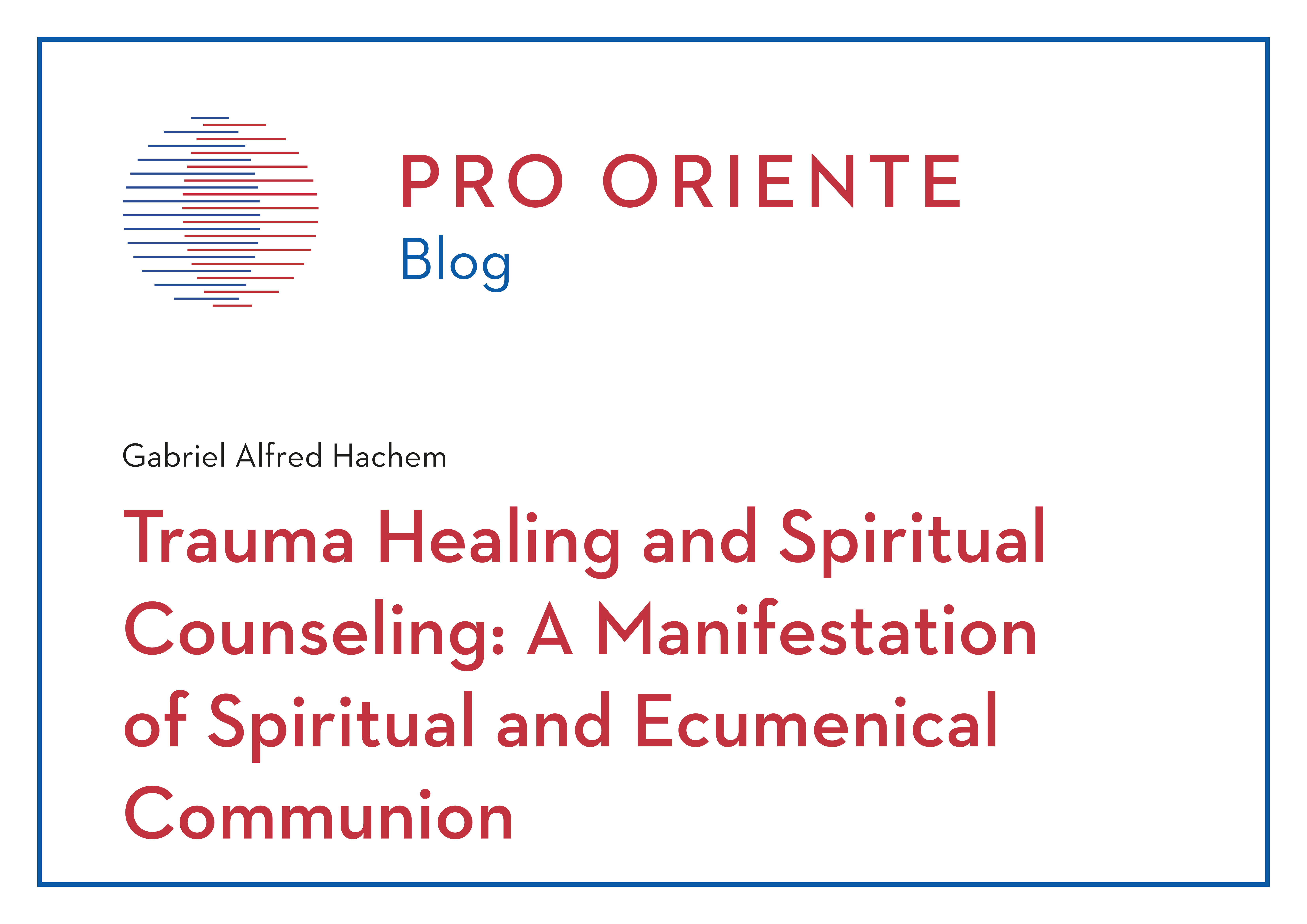
Trauma Healing and Spiritual Counseling: A Manifestation of Spiritual and Ecumenical Communion
What are the theological foundations for wounds healing in Christian life and in the ecumenical movement, as experienced in the Middle East?
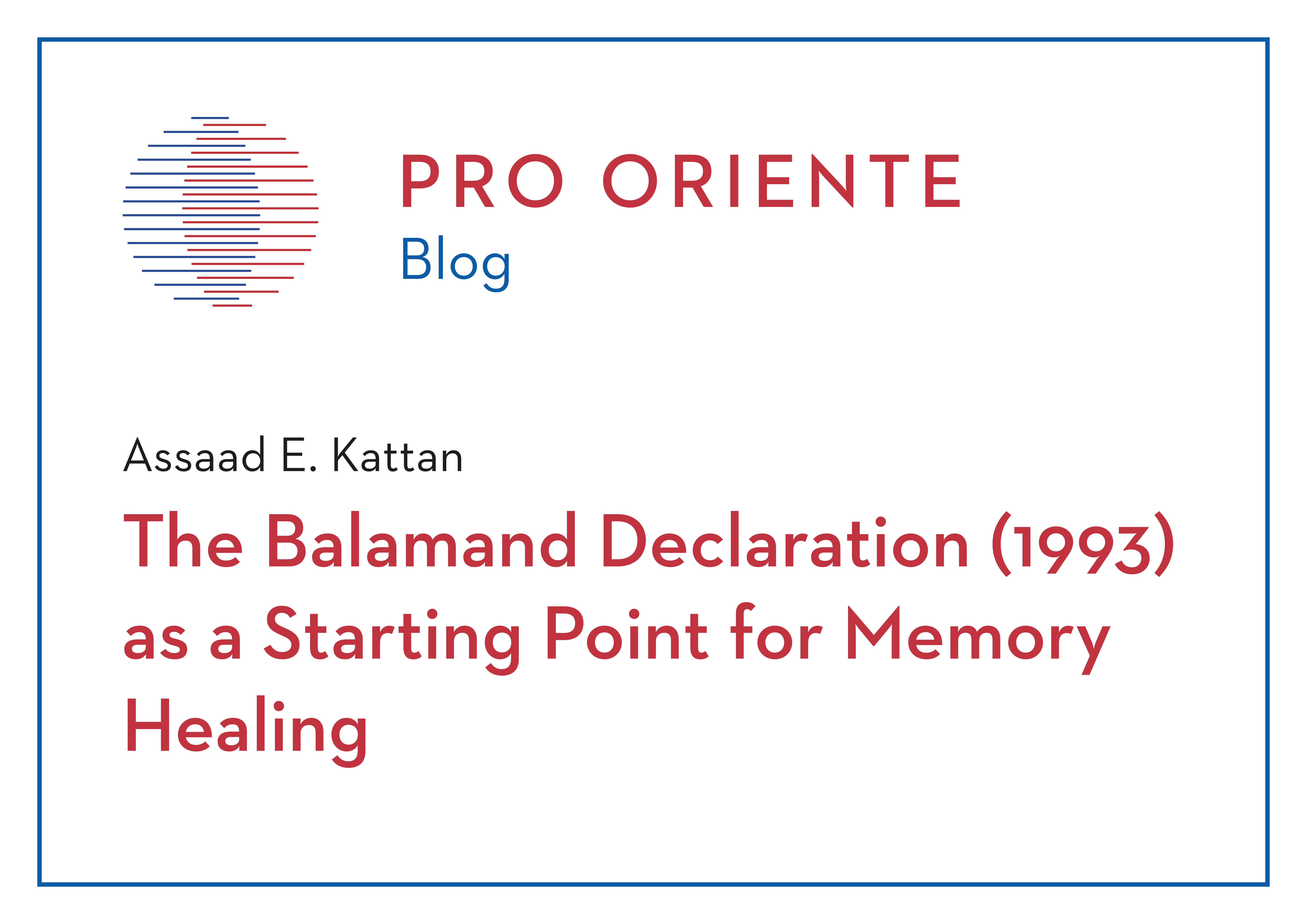
The Balamand Declaration (1993) as a Starting Point for Memory Healing
First of all, it should be noted that the Balamand Declaration, unlike its predecessors such as the documents of Munich (1982), Bari (1987), and Valamo (1988), has a very specific context. It emerged out of a crisis in Catholic-Orthodox relations related to the Eastern Churches united with the Roman Catholic Church after the fall of communism. The purpose of this declaration is primarily conciliatory, aiming to create a “serene atmosphere” (34) in order to advance dialogue (22). Therefore, it is just a step, a “necessary stage” (15) in the Orthodox-Catholic dialogue towards greater communion and full agreement “on the content of the faith” (15).
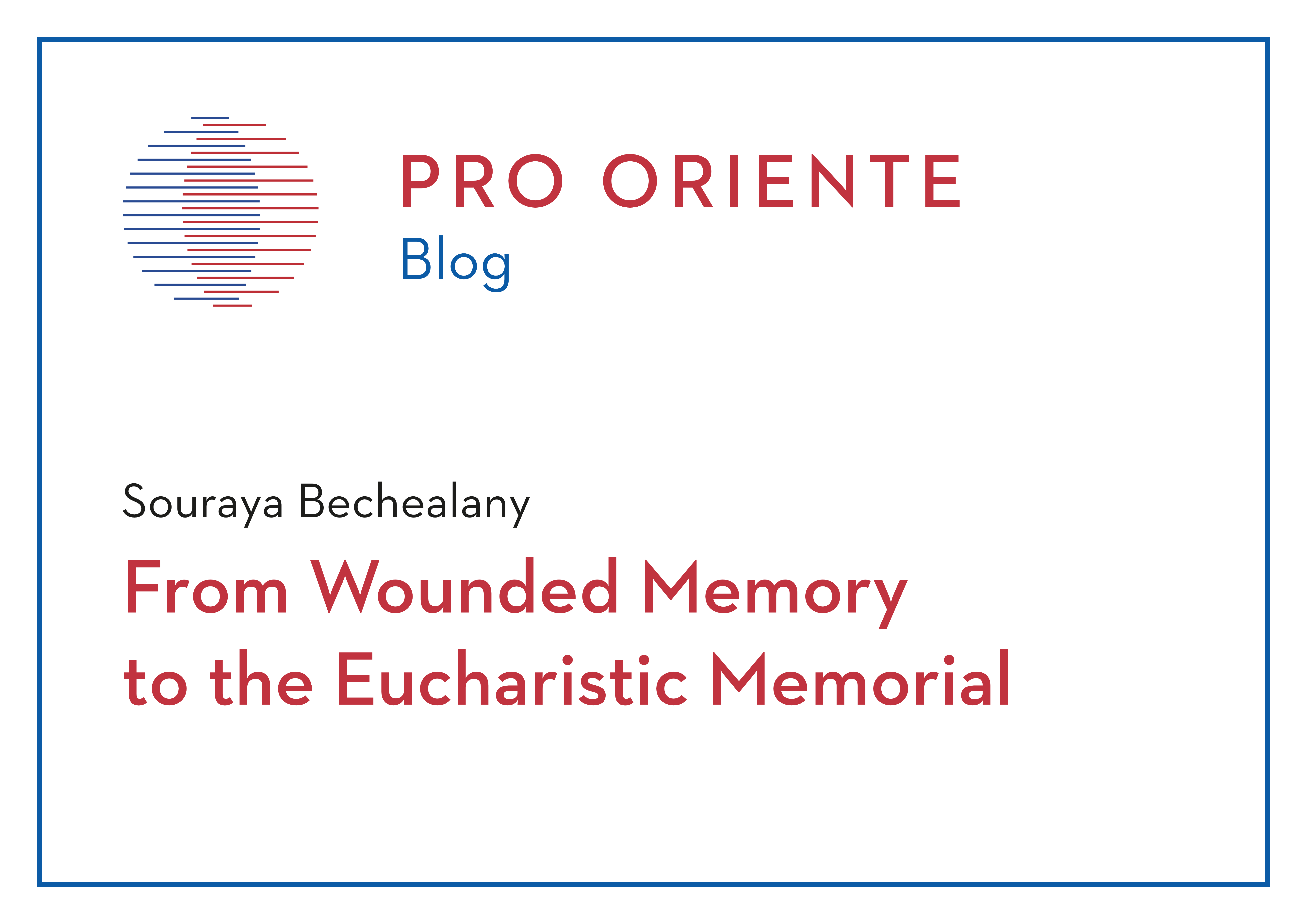
From Wounded Memory to the Eucharistic Memorial
This title expresses a trajectory, as it takes us from the wounded but transitory human memory to a liturgical event that does not pass; a divine event that heals and restores human memory, reconciling it with God, self, and the sisters and brothers.
September 2024
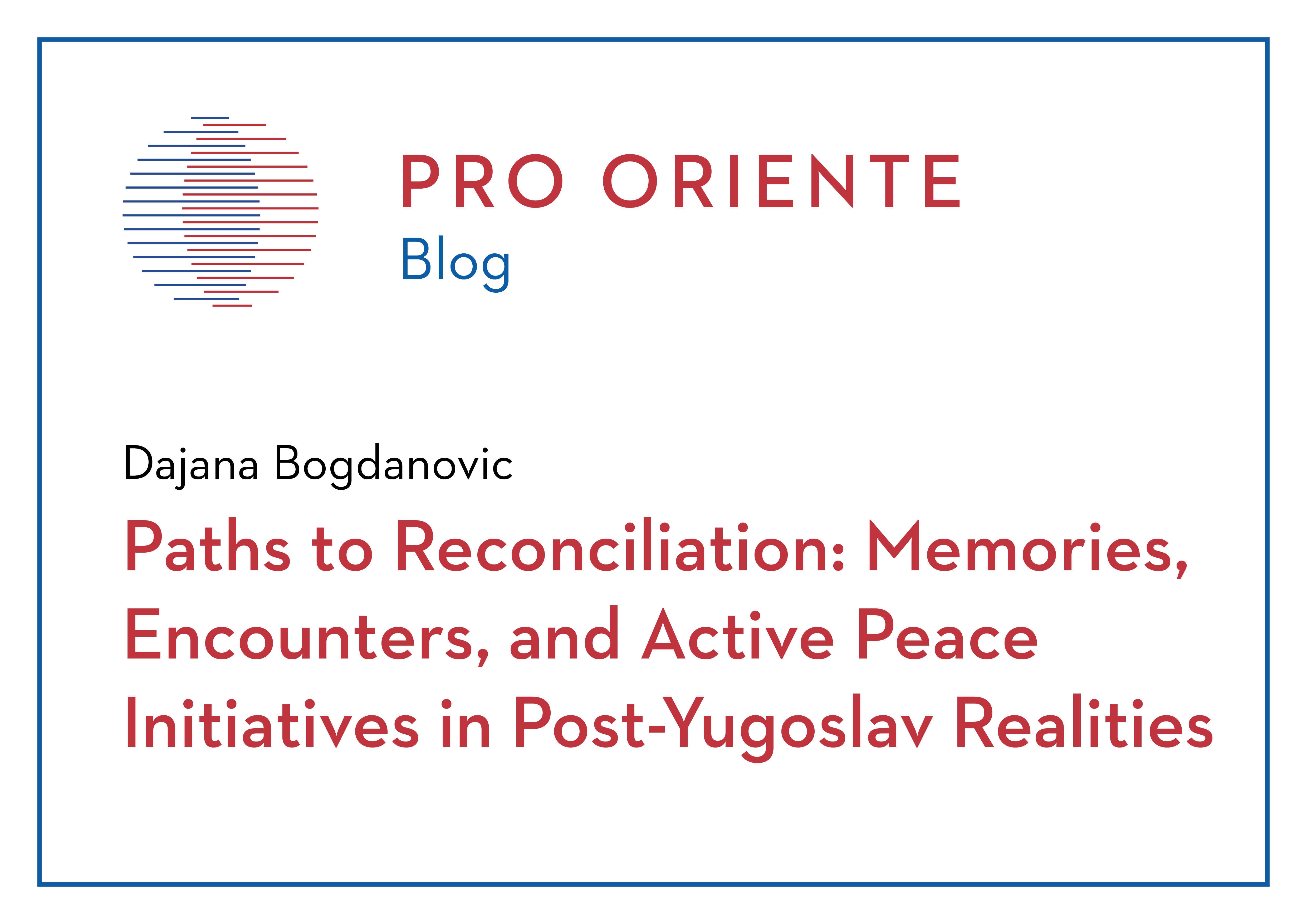
Paths to Reconciliation: Memories, Encounters, and Active Peace Initiatives in Post-Yugoslav Realities
Every monotheistic religion relies on same principles- those of love, respect and mercy. If all of us were created as the picture of God, in all its diversity, why do we use this diversity for separation instead of complementation? Religion in the Balkans has been an important factor in reconciliation, shaping the minds and influencing the hearts of believers, for finding a path towards the others in a positive way, and being influenced by positive examples of inter-religious dialogue, seen among religious leaders, but also different initiatives which gather large numbers of citizens.
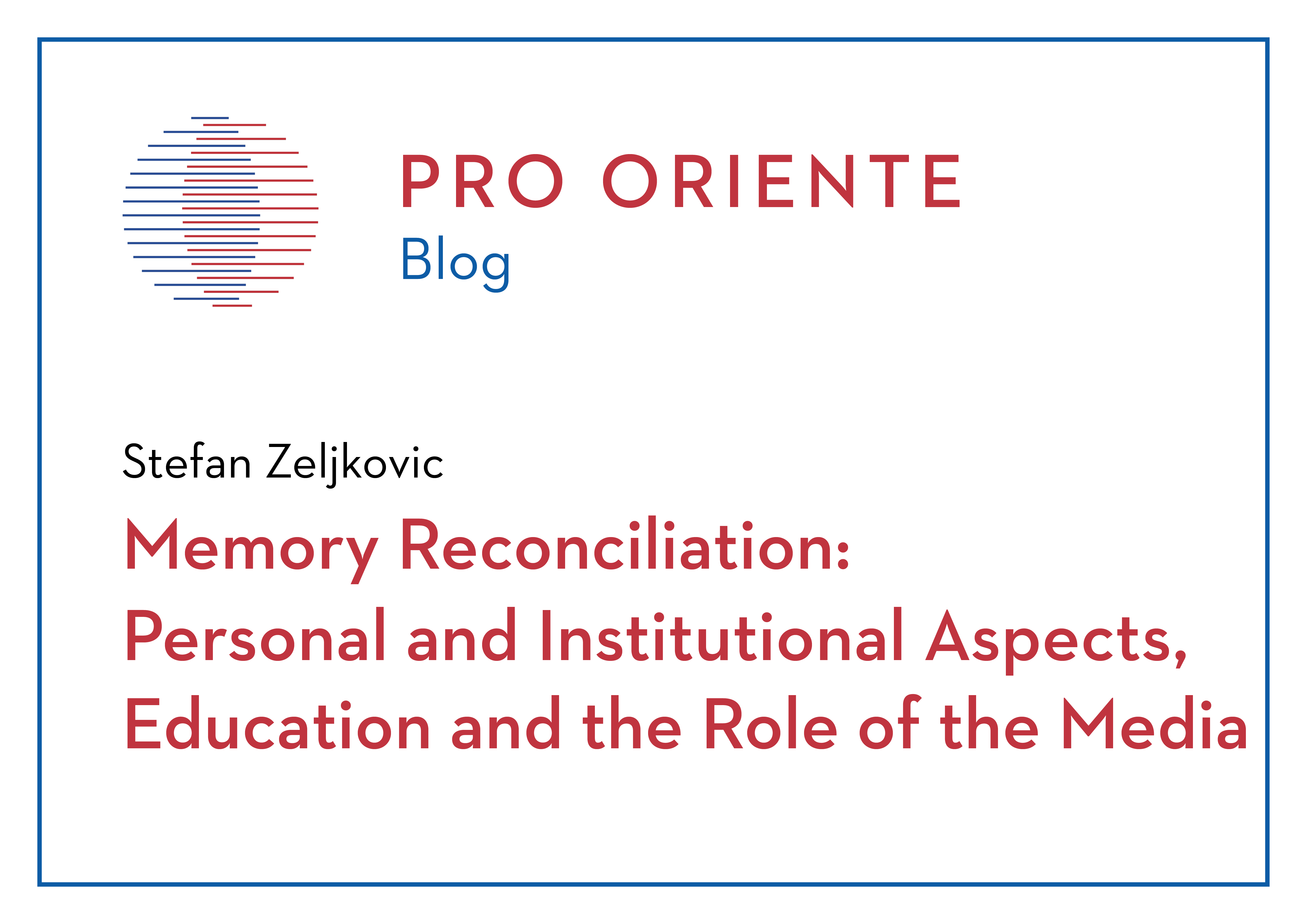
Memory Reconciliation: Personal and Institutional Aspects, Education and the Role of the Media
Memory plays a pivotal role in shaping collective identity and influencing perspectives on the past, present, and future. In societies scarred by historical conflicts, reconciling memories is essential for healing wounds, fostering comprehension, and constructing a more inclusive future. The juxtaposition of the culture of memory with the culture of forgetting underscores the continuum from collective remembrance to collective amnesia. This reconciliation is not merely about recalling past events but involves a complex process of reinterpreting and integrating those memories to build a shared future.
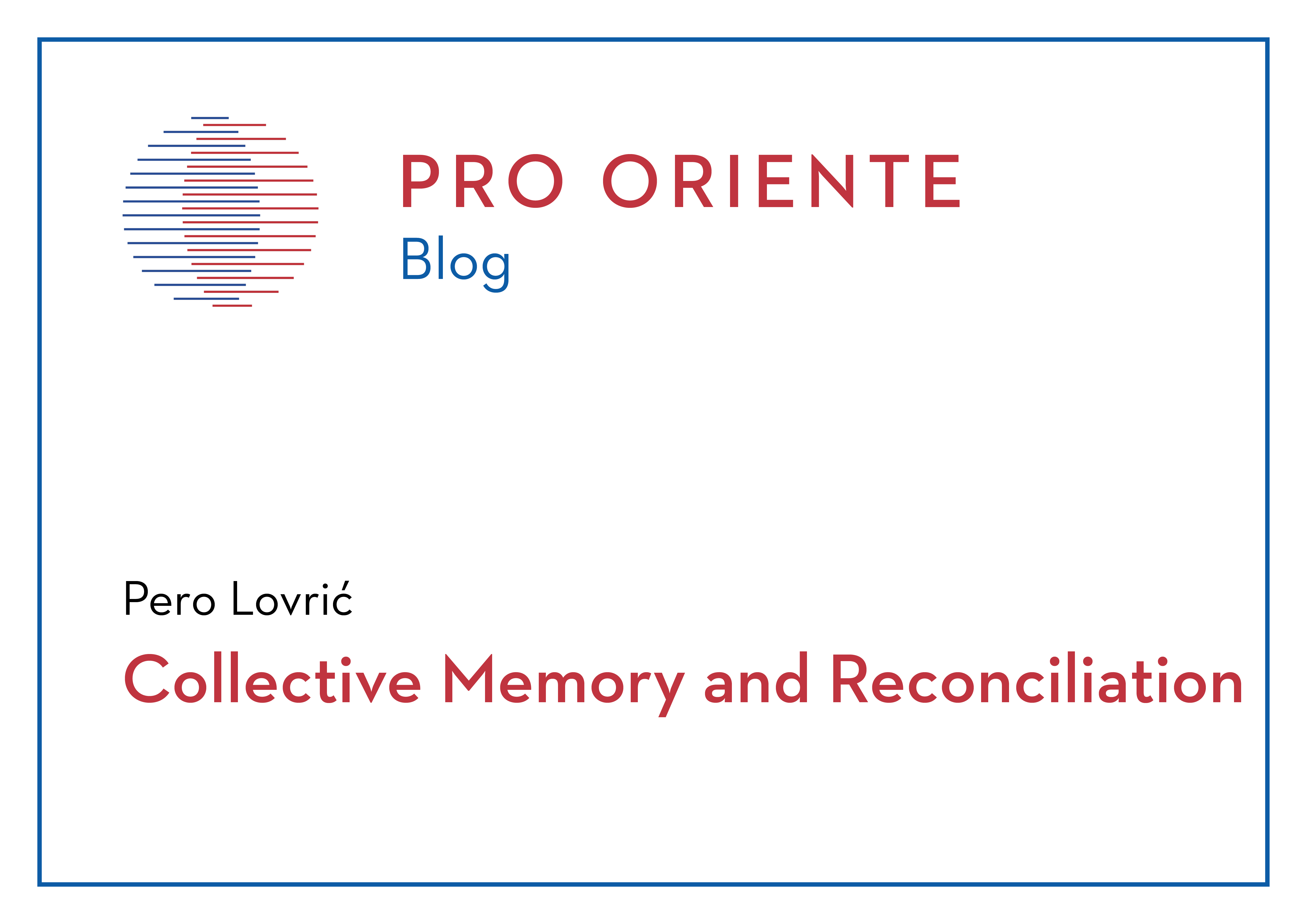
Collective Memory and Reconciliation
The question of whether memory should be transformed may seem debatable. Or at least, we should ask ourselves what is meant by transformation. When it comes to memory, the goal should be the right remembering, in which the principles of truth and justice have the greatest importance. We should therefore focus on the purification or rectification of memory, which enables the transformation of relationships. Correct shared memory is the prerequisite for forgiveness, reconciliation, and healing. These principles are the extensions of the Gospel proposition “The truth will set you free” (John 8:32) and should be the basis of any political theology. When two groups of people establish enough truth about their common past, it seems that they can create a creative and life-enhancing reality.
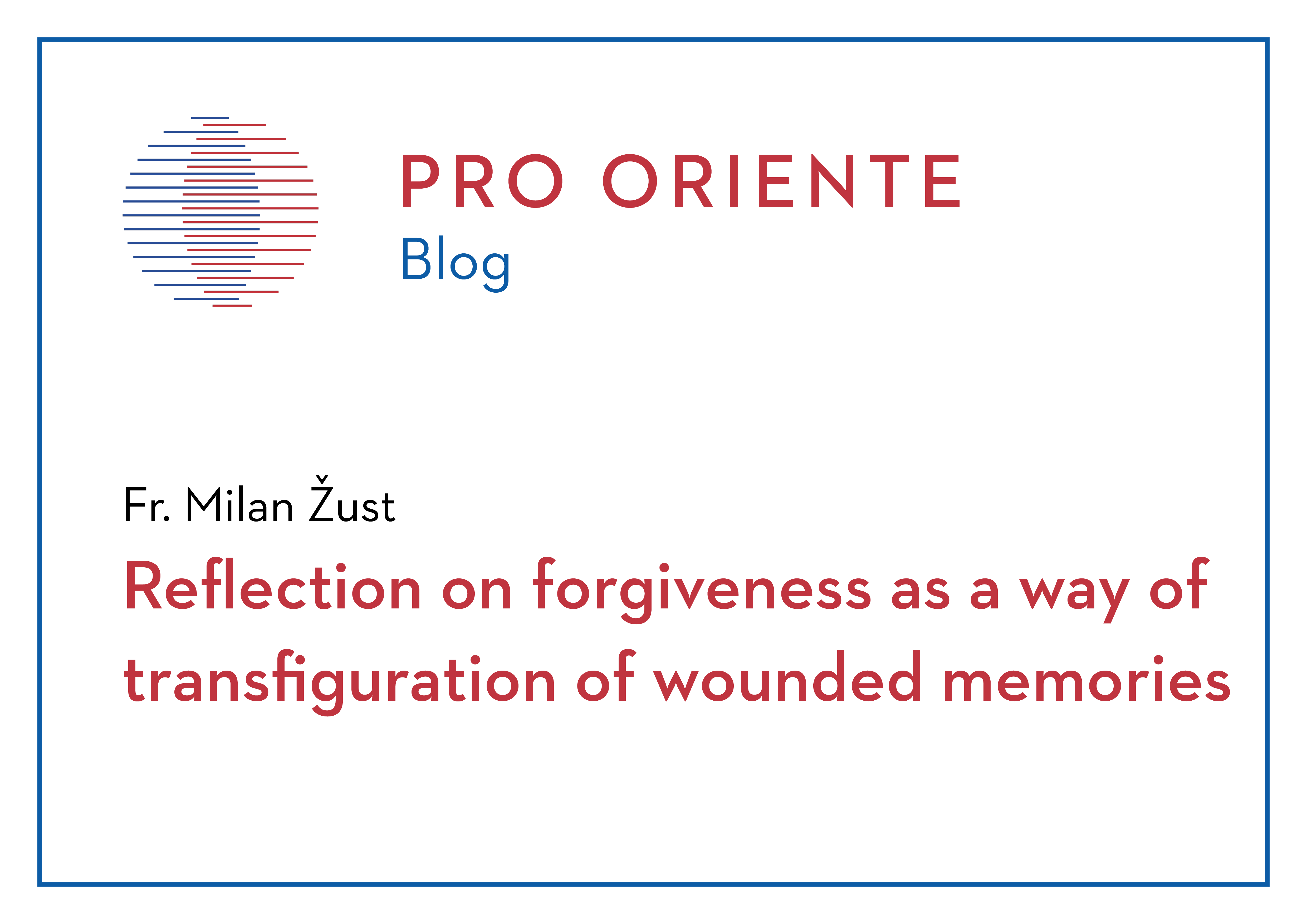
Reflection on forgiveness as a way of transfiguration of wounded memories
In the Catholic Church there have been various reflections on the healing of wounded memories, and various gestures, particularly around the Jubilee Year 2000. That very year, the International Theological Commission produced the document Memory and Reconciliation: The Church and the Faults of the Past, which deals with the purification of memory in various contexts, including between Christian communities. Among other aspects, the documents states that forgiveness granted to others and the request for forgiveness are indispensable steps towards healing wounded memories and reconciliation. Forgiveness, however, as well as the acknowledgement of one's faults, together with the request for forgiveness, are not within human strength.
August 2024
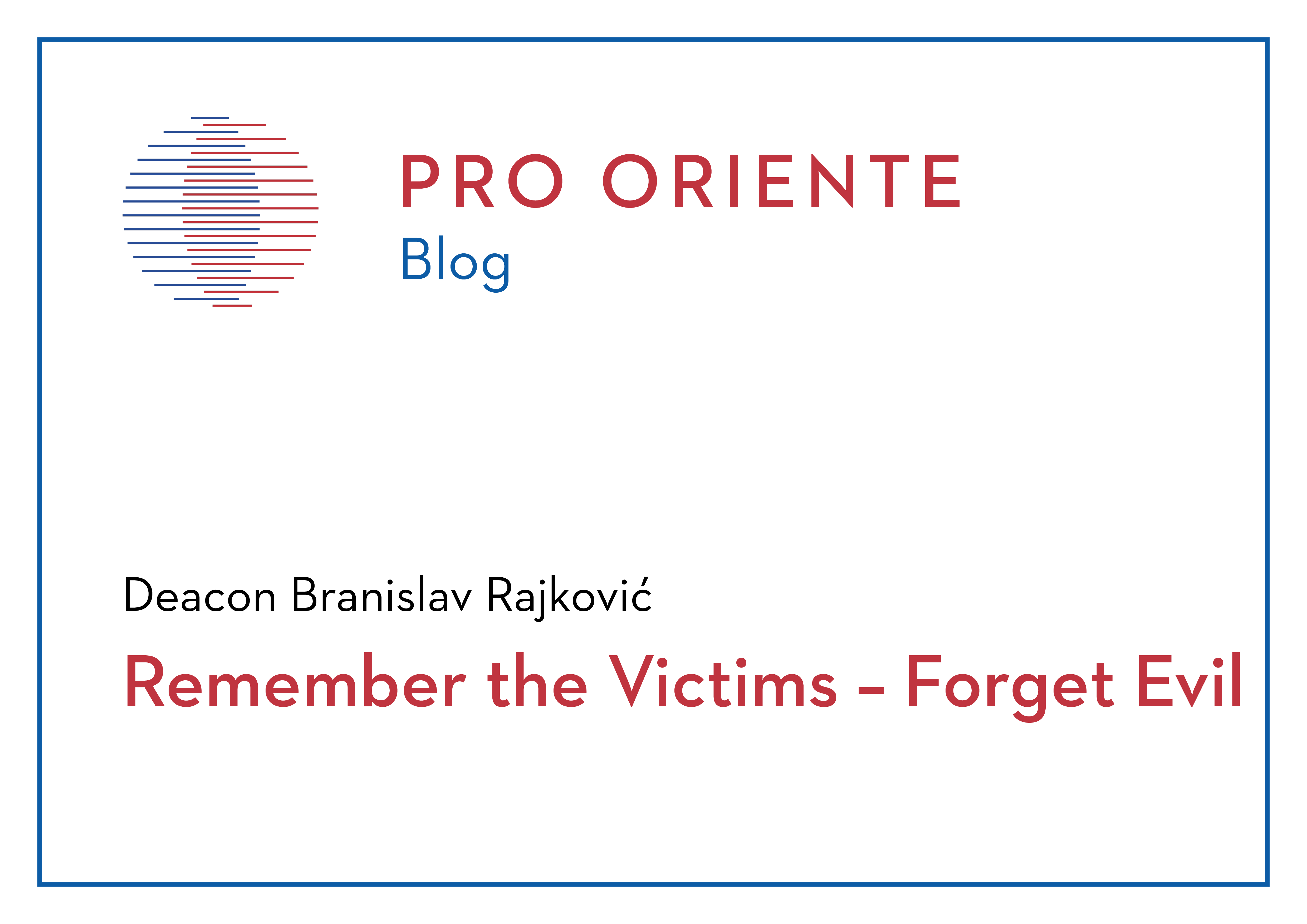
Remember the Victims – Forget the Evil
The ways to reconciliation, no matter how real they are, can only be like overgrown paths or lines on navigation maps, if they are not followed. Memories could be like the meadows along those paths - of various colors and smells but still wild, uncultivated and unpredictable, if they are not cultivated, which implies that something is grown on them, but something, if not quite uprooted, at least not nourished, something remembered, and something forgotten, because it would only make sense to talk about culture, that is, the cultivation of memory. The meetings themselves in this analogy could even be understood as comfortable highways, which still lead nowhere if people do not meet on them in sincere efforts to make peace..., while active peace initiatives would be like crossroads on those paths and roads, and personal examples would be the only sure signposts to the path, truth and life.
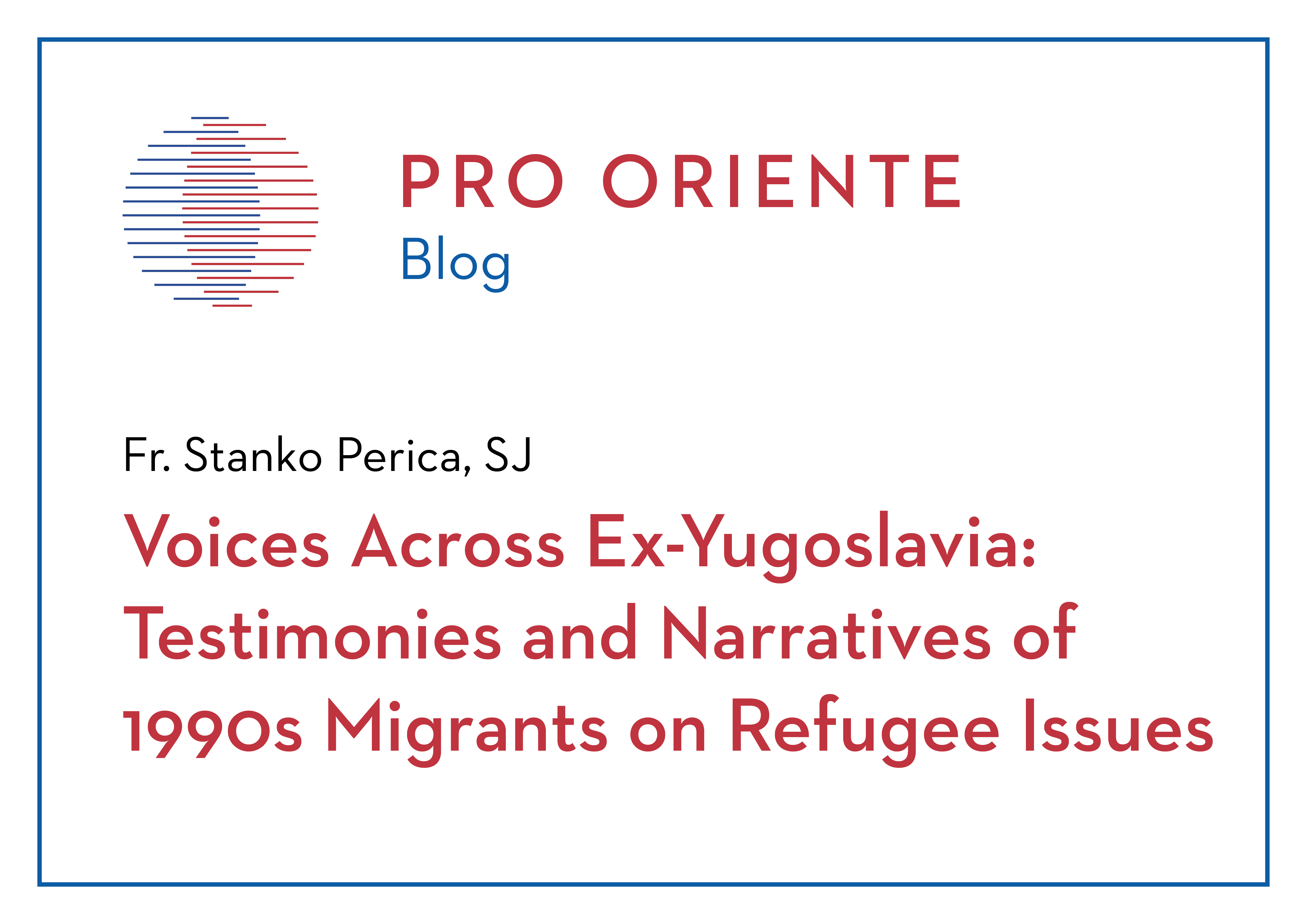
Voices Across Ex-Yugoslavia: Testimonies and Narratives of 1990s Migrants on Refugee Issues
Each refugee crisis is a tragedy. It means that there is a war, violence, political or religious persecution, some natural disaster or unbearable influence of climate change, or perhaps people are escaping from extreme poverty. Refugees present a collision with reality, with the world that is full of injustices and suffering. As is always the case with the bad news, there are two basic ways to cope with it: to deny and disregard it, or to allow ourselves to be moved by it.
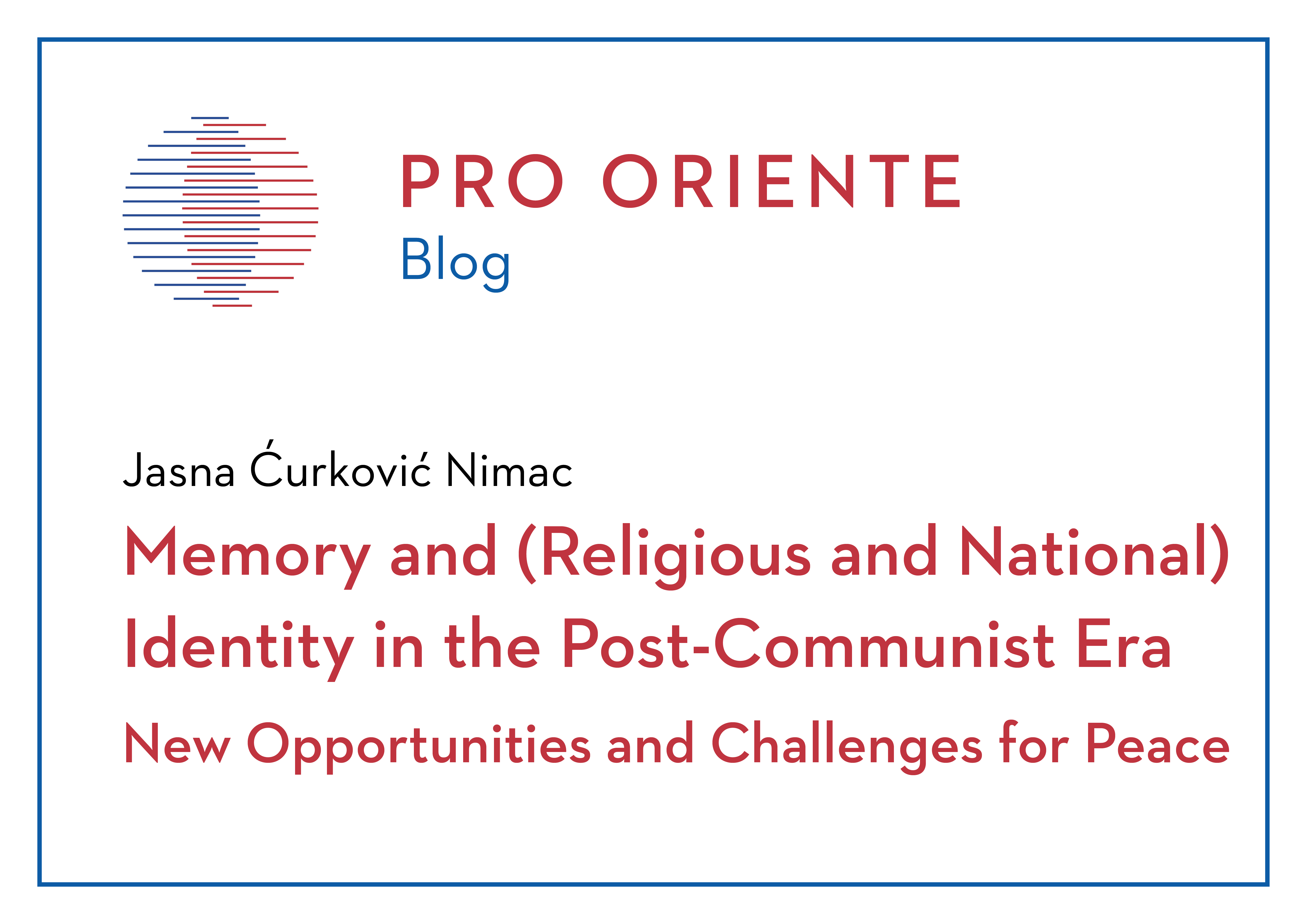
Memory and (Religious and National) Identity in the Post-Communist Era – New Opportunities and Challenges for Peace
Identity is a sociogenic and dynamic phenomenon that simultaneously acts as a factor of integration/inclusion and exclusion/separation. On the other hand, identity implies a certain sameness or self-awareness over time, and in this sense, memory plays an important role as the connective tissue of personal and collective identity. Given that the „other“ is often the context against which the image of oneself is created, memory can play an instrumental role in reinforcing the „useful“ narrative about oneself and the other to legitimize and justify exclusions and secure privileges.
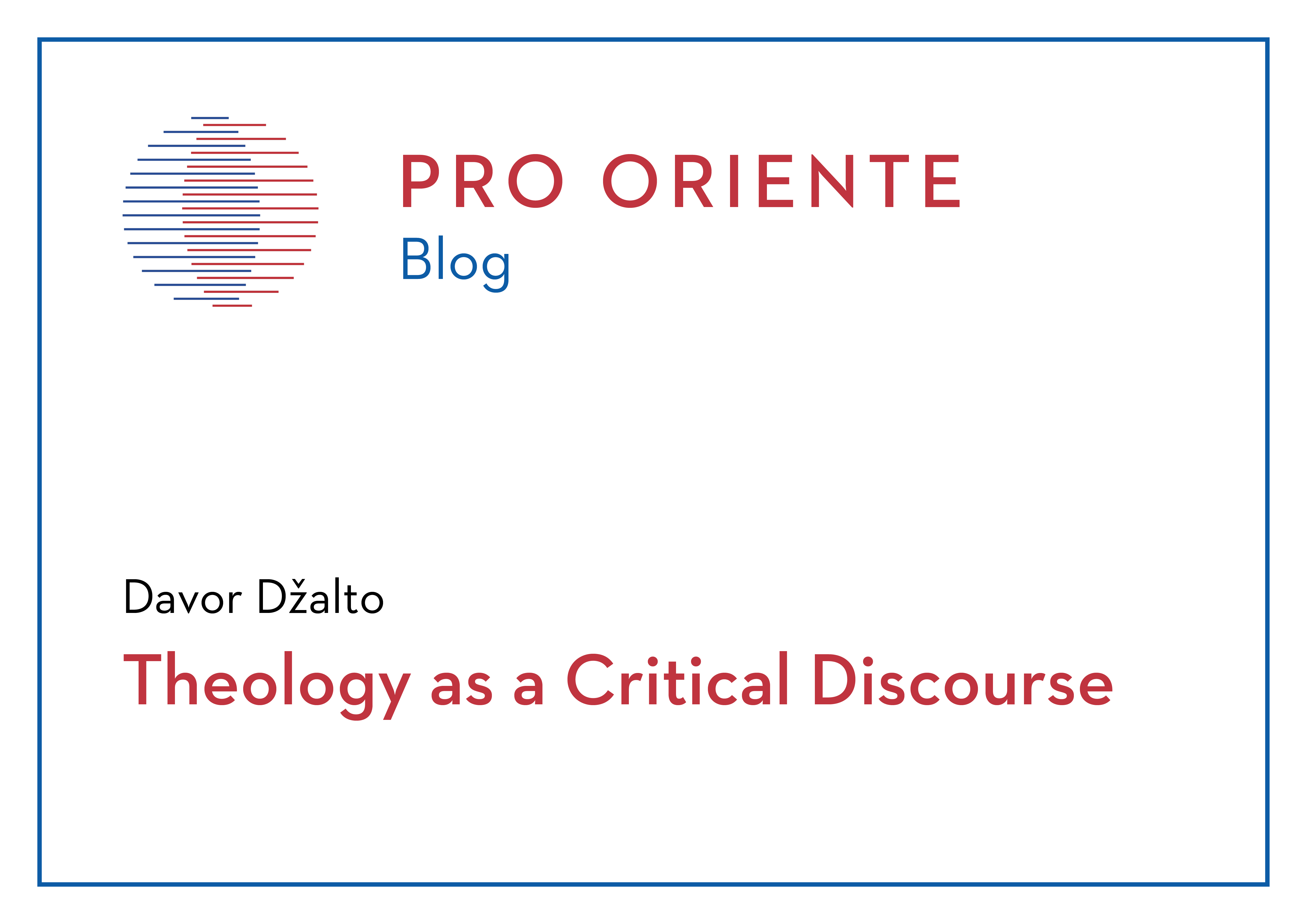
Theology as a Critical Discourse
The word “theology” has been used in various meanings. I will point to three of them, acknowledging that in actual theological practices and especially in the social life of Christianity, these meanings often blend and overlap without clear boundaries.
April 2024
März 2024
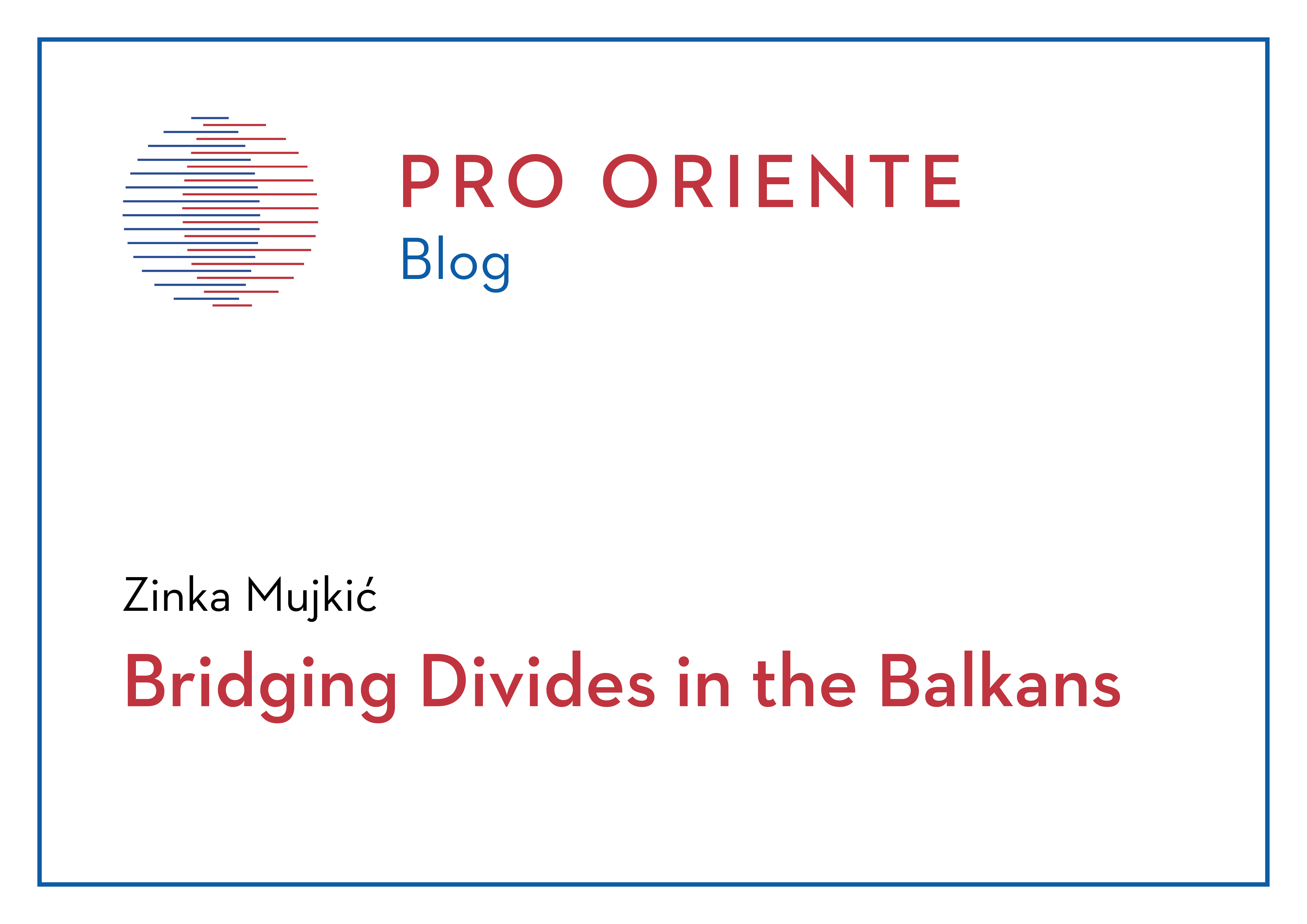
Bridging Divindes in the Balkans
As a participant in the conference of the “Healing of Wounded Memories” project, I was driven to share insights into our theological initiatives addressing the multifaceted issues discussed- an endeavor both proud and humbling. The goal of exploring transitional justice and reconciliation, as outlined in the conference objectives, was profoundly impacted by the ongoing war in Ukraine, conflicts in the Holy Land, and the geopolitical tensions casting a prevailing shadow over Southeastern Europe’s stability. This circumstance has heightened our eagerness to present our ecumenical vision, particularly within the intricate tapestry of the Balkans. Here, where wounds from past conflicts linger, the theological discourse serves as a vital compass guiding the way toward reconciliation and healing. The ongoing challenges only strengthen our resolve to navigate our work in the complexities of this region.
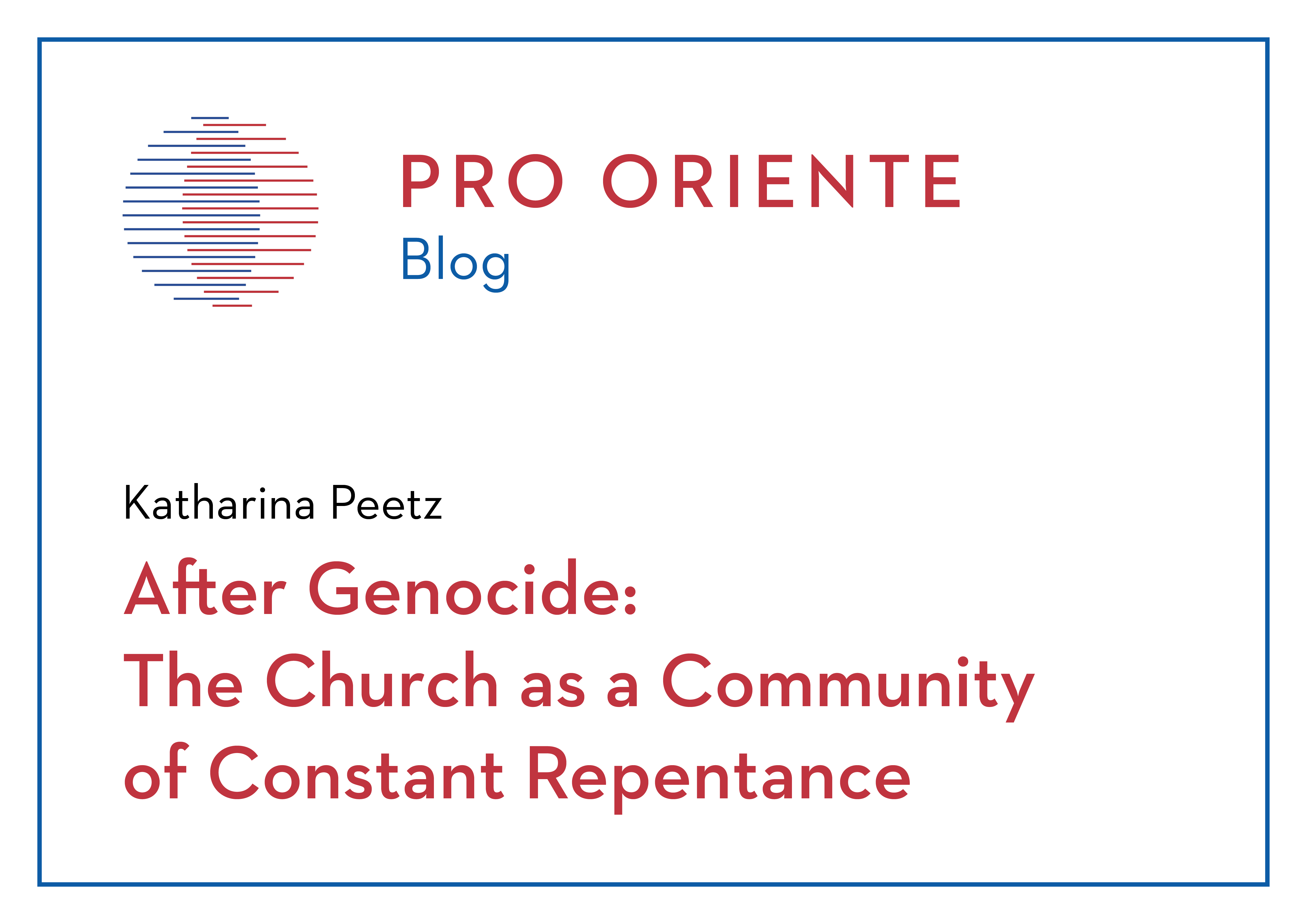
After Genocide: The Church as a Community of Constant Repentance
The holy Church is not a societas perfecta that exists outside of history, human error or the limitations of time and space. It can be assured of its own holiness only as a result of God’s grace and his decision to answer the Church’s epicletic plea for holiness. As the community of the faithful the Church is in constant need of sanctification. Repentance in this sense means a lifelong dynamic of spiritual and existential transformation, a holistic metamorphosis of the whole Church: metanoia.
Februar 2024
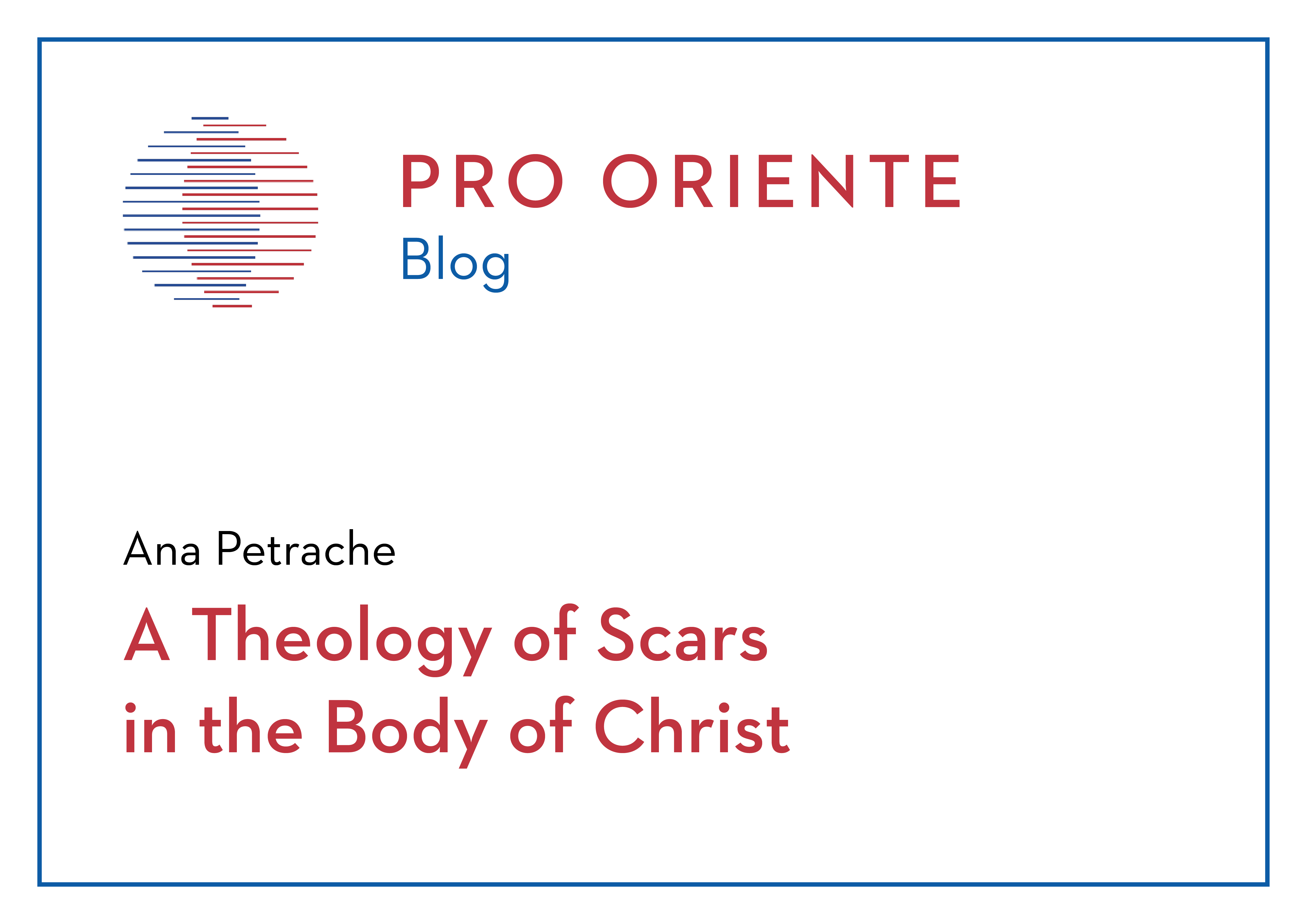
A Theology of Scars of the Body of Christ
“What we must do is not heal ourselves, not treat, console, reassure, or educate others, but to remain erect in the sacred wound, to see and show it in silence”. – This line appears in the book The Most Secret Memory of Men, by Mohamed Mbougar Sarr, a Senegalese young author who won the Goncourt Price in France in 2021. The context of the paragraph is a tragic story of an infant who is witnessing the killing of his parents, the parents are tortured, and the child hears their cries. After this episode, the aggressor realizes that the child has witnessed this massacre, and he decides not to kill the child. However, not out of mercy. The decision to spare his life arises from the belief that living with the memory of such horrors is more torturous than death itself.
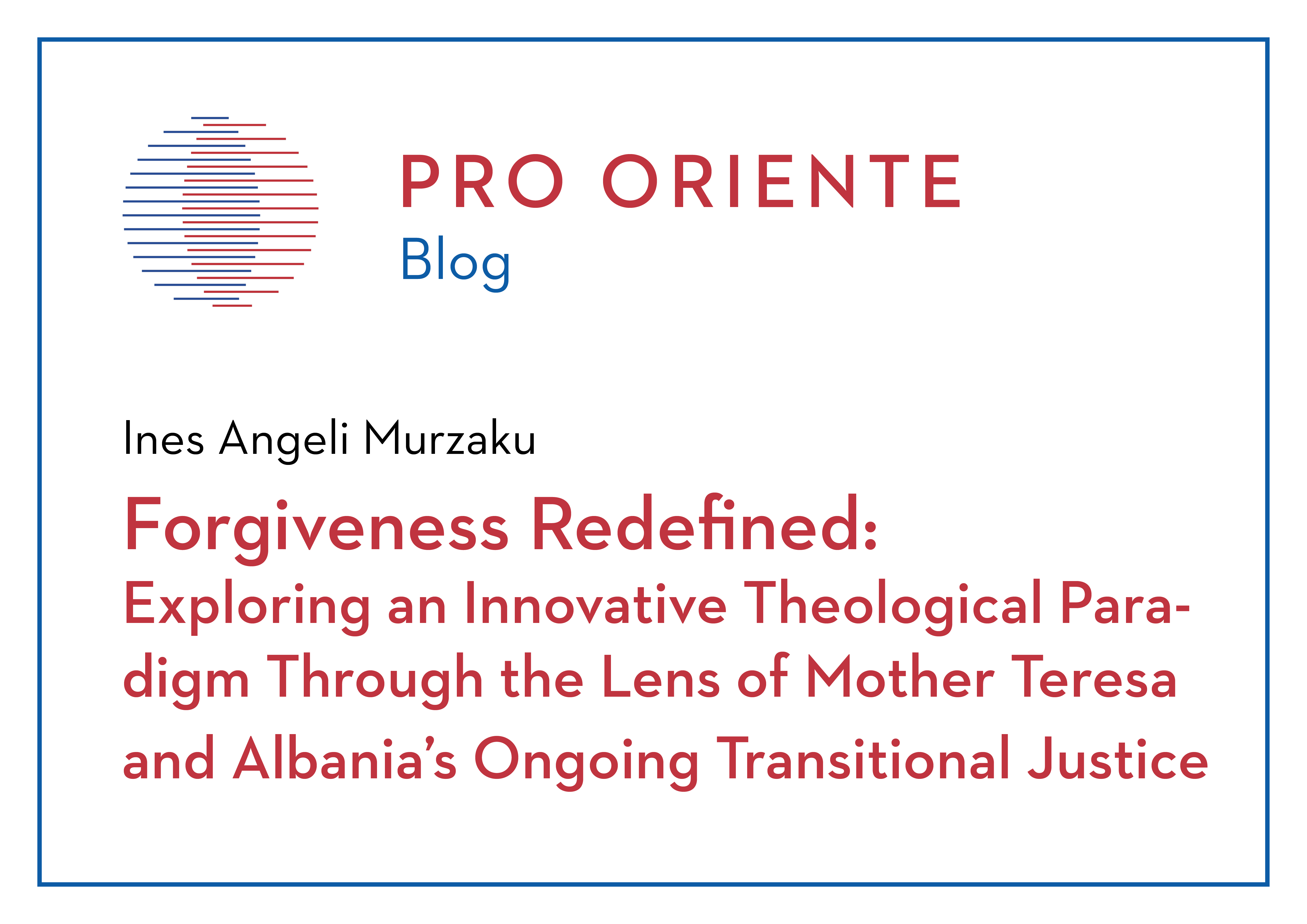
Forgiveness Redefined: Exploring an Innovative Theological Paradigm Through the Lens of Mother Teresa and Albania’s Ongoing Transitional Justice
Albania, known for its religious diversity and history of severe Communist persecution, stands as a significant case study in transitional justice, ecumenical and interfaith reconciliation, and the concept of Holistic Reconciliation. This paper explores Albania’s religious composition, where Sunni Muslims constitute nearly 57 percent of the population, Roman Catholics 10 percent, members of the Albanian Orthodox Church 7 percent, and members of the Bektashi Order (an Islamic Sufi order) 2 percent. All religious groups in Albania, including the Catholic Church, faced severe persecution during the Communist era. These persecution united religious and lay individuals, highlighting the need for transitional justice. Albania’s situation underscores the importance of Holistic Reconciliation, with religious leaders playing a key role in this process.
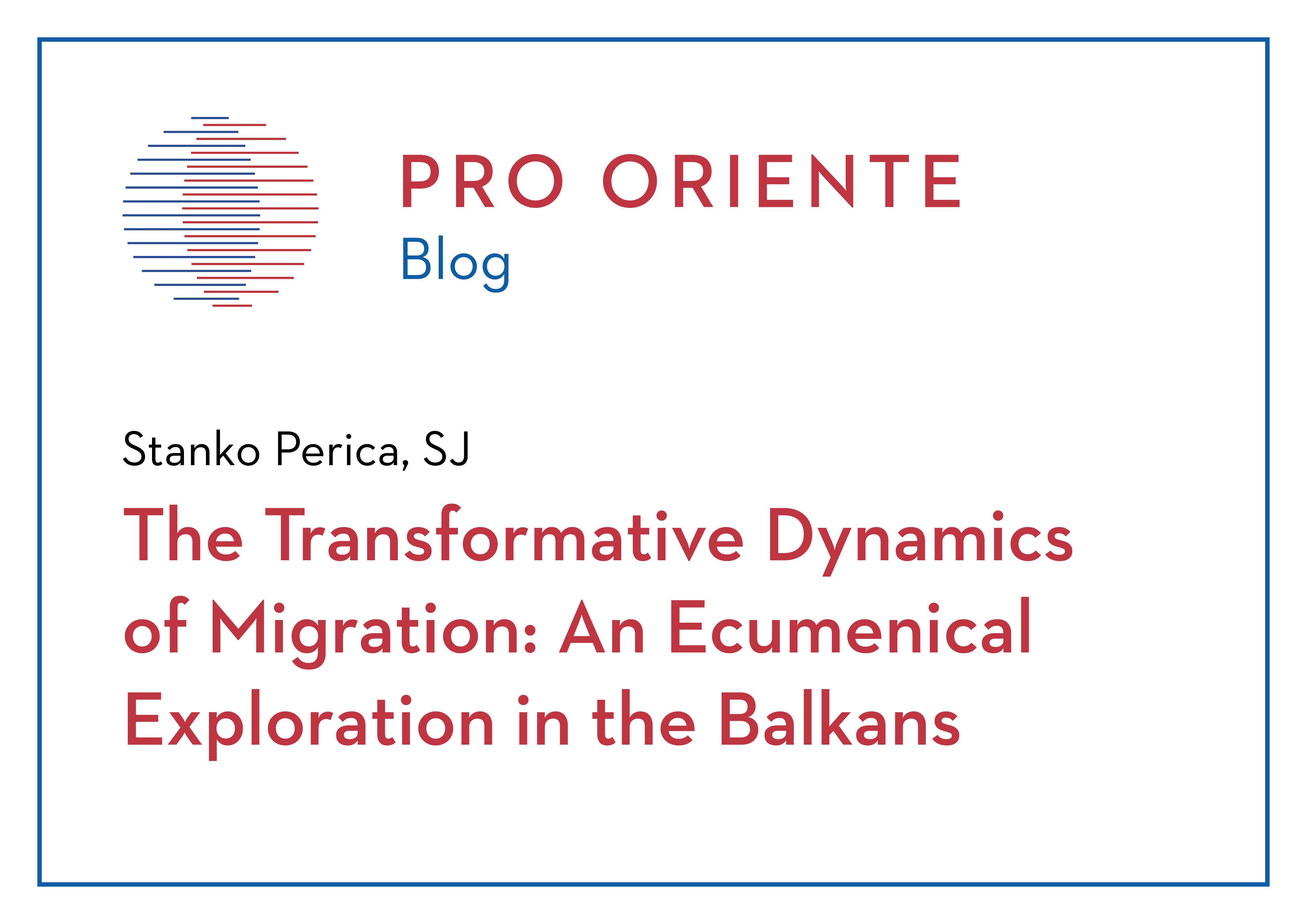
The Transformative Dynamics of Migration: An Ecumenical Exploration in the Balkans
This paper delves into the multifaceted impact of the migration phenomenon that unfolds in the Balkans since 2015. By examining its evolution, socio-political consequences, and the unexpected role of migrants and refugees in fostering ecumenism, it unfolds the intricate tapestry of contemporary migration in the region. Through a three-fold analysis, the paper investigates how migrants become unexpected allies of ecumenism, enhance the relevance of churches, and contribute to a heightened capacity for empathetic listening among diverse religious communities.




